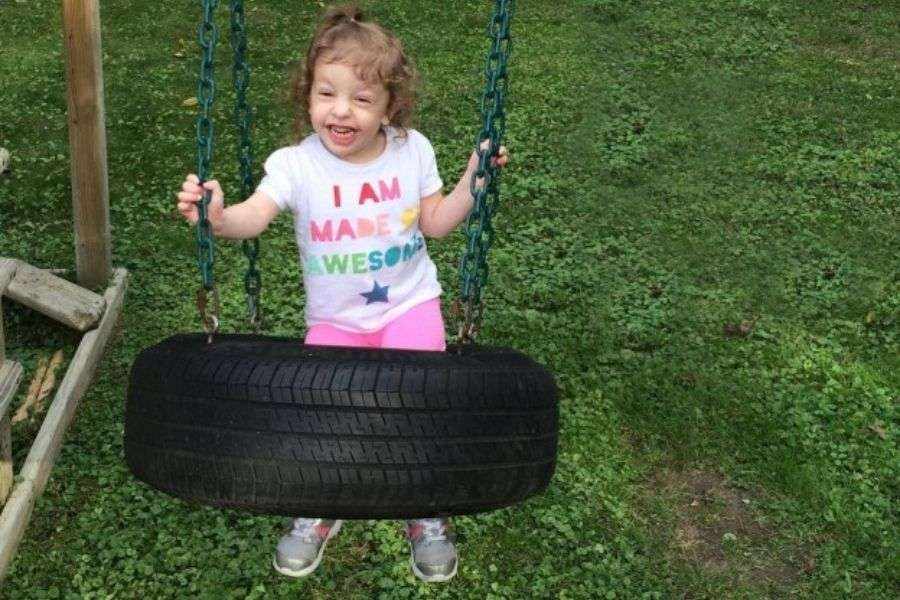Agenesis of the Corpus Callosum
Overview

Agenesis of the corpus callosum (ACC) is a rare brain defect that occurs when the corpus callosum, which connects the left and right sides of the brain, fails to develop properly.
This defect can vary from partial agenesis, where the structure is underdeveloped, to complete agenesis, where there are no connections between the brain hemispheres.
It's a congenital condition, present at birth and often linked with other neurological conditions.
Although rare, it can have a significant impact on an individual's health and quality of life.
Symptoms
• Neurological and Developmental Issues: Developmental delays in motor skills, speech, and language. Challenges in social interactions and understanding social cues. Intellectual disabilities or learning difficulties.
• Impaired problem-solving abilities and abstract thinking. Memory deficits and difficulties processing information. Coordination problems and difficulties with fine motor skills.
• Behavioral and Emotional Issues: Emotional lability or difficulties regulating emotions. Social and behavioral disinhibition. ADHD-like symptoms. Anxiety or obsessive-compulsive tendencies.
• Physical Symptoms: Facial abnormalities or other congenital anomalies (rare).
• Seizures (not universally experienced). Asymptomatic Cases: Some individuals may be asymptomatic or have minimal symptoms, discovered incidentally during unrelated brain imaging studies.
Causes & Risks
• Genetic factors: In many cases, ACC is thought to have a genetic basis, meaning it can be inherited. It may occur sporadically or be passed down through families, and there can be various genetic factors contributing to its development. Genetic mutations or changes during fetal development may disrupt the formation of the corpus callosum.
• Environmental factors: Some environmental factors or exposures during pregnancy may increase the risk of ACC, although specific causes related to environmental influences are not always clear. Factors such as infections, exposure to toxins, or maternal health conditions might play a role in certain cases.
• Associated syndromes and conditions: ACC can sometimes be part of other genetic syndromes or chromosomal abnormalities, where the absence of the corpus callosum is just one of several features present.
• Certain genetic syndromes or conditions, such as Aicardi syndrome or chromosomal abnormalities like trisomy 8, may involve ACC as a component.
• Risk factors: There are no definitive known risk factors that predict or cause ACC in every case. However, having a family history of ACC or related brain malformations might increase the likelihood of the condition occurring in subsequent generations.
Test & Diagnosis
• Diagnosing Agenesis of the Corpus Callosum (ACC), a congenital brain malformation, involves a comprehensive approach.
• While prenatal ultrasound may provide initial indications, confirmation and detailed assessment rely on Magnetic Resonance Imaging (MRI).
• Genetic testing is recommended, especially with a family history. A specialist conducts a vital clinical evaluation, scrutinizing developmental milestones, neurological function, and associated symptoms.
• Additional tests, such as EEG or specialized imaging, may be required for thorough brain function evaluation.
• This meticulous diagnostic process ensures a holistic understanding of ACC, guiding appropriate interventions and support for individuals affected by this condition.
Treatment
• Early intervention and therapies: Inclusive of physical, occupational, speech therapy, and developmental interventions. Targets developmental delays, motor skills deficits, language difficulties. Aims at maximizing potential and enhancing functional abilities.
• Educational support: Tailored educational accommodations and specialized programs. Utilizes specific strategies to address cognitive, behavioral, or social challenges. Provides individualized learning support for children with ACC.
• Medical management of associated conditions: Addresses co-occurring symptoms like seizures or developmental disorders. Involves medications, behavioral therapies, and interventions. Focuses on improving overall quality of life and functioning.
• Family support and counseling: Crucial guidance for families affected by ACC. Offers counseling, support groups, and educational resources. Assists families in understanding the condition and accessing necessary support services.
• Multidisciplinary care: Collaborative approach involving neurologists, pediatricians, psychologists, therapists, and educators. Ensures comprehensive care and effective management of ACC.
Living With
Living with the Agenesis of the Corpus Callosum (ACC) involves diverse challenges that vary based on callosal abnormalities and associated symptoms.
Individuals may contend with coordination issues, fine motor skill challenges, and difficulties in processing information, social cues, and language development. Addressing these challenges involves therapies like physical, occupational, and speech therapy, along with behavioral interventions.
Early intervention is crucial, aiming to enhance developmental milestones and social interactions. Educational accommodations, including individualized education plans and tailored schooling, benefit children with ACC.
Families find support through counseling, support groups, and educational resources, aiding in understanding and navigating challenges. Regular medical check-ups and management of associated symptoms ensure holistic care. Embracing individual strengths fosters confidence and improves the overall quality of life.
Engaging with support networks and communities provides valuable resources and a sense of belonging for those affected by ACC.
Complications
Complications and challenges related to Agenesis of the Corpus Callosum (ACC) encompass various aspects:
• Neurological and Developmental Issues: ACC can result in delays in motor milestones, coordination difficulties, language delays, learning disabilities, and challenges in social interactions.
• Seizures: Some individuals with ACC may be prone to seizures or epilepsy, requiring proper management with medications or other treatments.
• Behavioral and Cognitive Challenges: ACC may be associated with behavioral issues, attention problems, executive functioning deficits, and challenges in regulating emotions or behavior.
• Other Brain Abnormalities: ACC might occur alongside additional brain abnormalities, leading to complex neurological issues and increased functional challenges.
• Medical and Health Concerns: Individuals with ACC may experience additional medical issues like visual or hearing impairments, sensory processing difficulties, or hormonal imbalances.

The Content is not intended to be a substitute for professional medical advice, diagnosis, or treatment. Always seek the advice of your physician or other qualified health provider with any questions you may have regarding a medical condition.
Know more about
Our Healthcare Planner
Three fundamental values we can assure you:
1. Personalized Healthcare.
2. Most advanced robotic therapies
3. Transparent pricing





